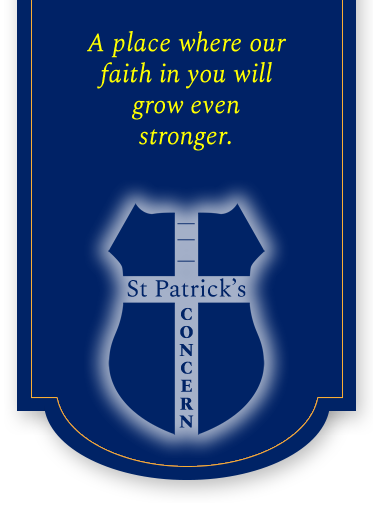St Patrick's School
Katanning

St Patrick's School
Katanning


Humanities and Social Sciences
Humanities and Social Sciences – The Australian Curriculum
Download a copy of The Australian Curriculum – Humanities and Social Sciences document.
The humanities and social sciences are the study of human behaviour and interaction in social, cultural, environmental, economic and political contexts. The humanities and social sciences have a historical and contemporary focus, from personal to global contexts, and consider challenges for the future.
In the Australian Curriculum, the Humanities and Social Sciences learning area includes a study of history, geography, civics and citizenship and economics and business.
Through studying Humanities and Social Sciences, students will develop the ability to question, think critically, solve problems, communicate effectively, make decisions and adapt to change. Thinking about and responding to issues requires an understanding of the key historical, geographical, political, economic and societal factors involved, and how these different factors interrelate.
The Humanities and Social Science subjects in the Australian Curriculum provide a broad understanding of the world in which we live, and how people can participate as active and informed citizens with high-level skills needed for the 21st century.
Within the domains of History, Geography, Civics and Citizenship (Years 3-6) and Economics and Business (Years 5-6), students develop knowledge and understanding and inquiry skills.
History
The Australian Curriculum: History aims to ensure that students develop:
- interest in, and enjoyment of, historical study for lifelong learning and work, including their capacity and willingness to be informed and active citizens
- knowledge, understanding and appreciation of the past and the forces that shape societies, including Australian society
- understanding and use of historical concepts such as evidence, continuity and change, cause and effect, significance, perspectives, empathy and contestability
- capacity to undertake historical inquiry, including skills in the analysis and use of sources, and in explanation and communication.
Geography
The Australian Curriculum: Geography aims to ensure that students develop:
- a sense of wonder, curiosity and respect about places, people, cultures and environments throughout the world
- a deep geographical knowledge of their own locality, Australia, the Asia region and the world
- the ability to think geographically, using geographical concepts
- the capacity to be competent, critical and creative users of geographical inquiry methods and skills
- as informed, responsible and active citizens who can contribute to the development of an environmentally and economically sustainable, and socially just world.
Civics and Citizenship
The Australian Curriculum: Civics and Citizenship aims to ensure students develop:
- a lifelong sense of belonging to and engagement with civic life as an active and informed citizen in the context of Australia as a secular democratic nation with a dynamic, multicultural, multi-faith society and a Christian heritage
- knowledge, understanding and appreciation of the values, principles, institutions and practices of Australia’s system of democratic government and law, and the role of the citizen in Australian government and society
- skills, including questioning and research; analysis, synthesis and interpretation; problem-solving and decision-making; communication and reflection, to investigate contemporary civics and citizenship issues and foster responsible participation in Australia’s democracy
- the capacities and dispositions to participate in the civic life of their nation at a local, regional and global level and as individuals in a globalised world.
Economics and Business
The Australian Curriculum: Economics and Business aims to ensure students develop:
- enterprising behaviours and capabilities that can be transferable into life, work and business opportunities and will contribute to the development and prosperity of individuals and society
- understanding of the ways society allocates limited resources to satisfy needs and wants, and how they participate in the economy as consumers, workers and producers
- understanding of the work and business environments within the Australian economy and its interactions and relationships with the global economy, in particular the Asia region
- reasoning and interpretation skills to apply economics and business concepts to make informed decisions
- understanding of economics and business decision-making and its role in creating a prosperous, sustainable and equitable economy for all Australians
- understandings that will enable them to actively and ethically participate in the local, national, regional and global economy as economically, financially and business-literate citizens.
© Australian Curriculum, Assessment and Reporting Authority
Awareness of history is an essential characteristic of any society, and historical knowledge is fundamental to understanding ourselves and others.





